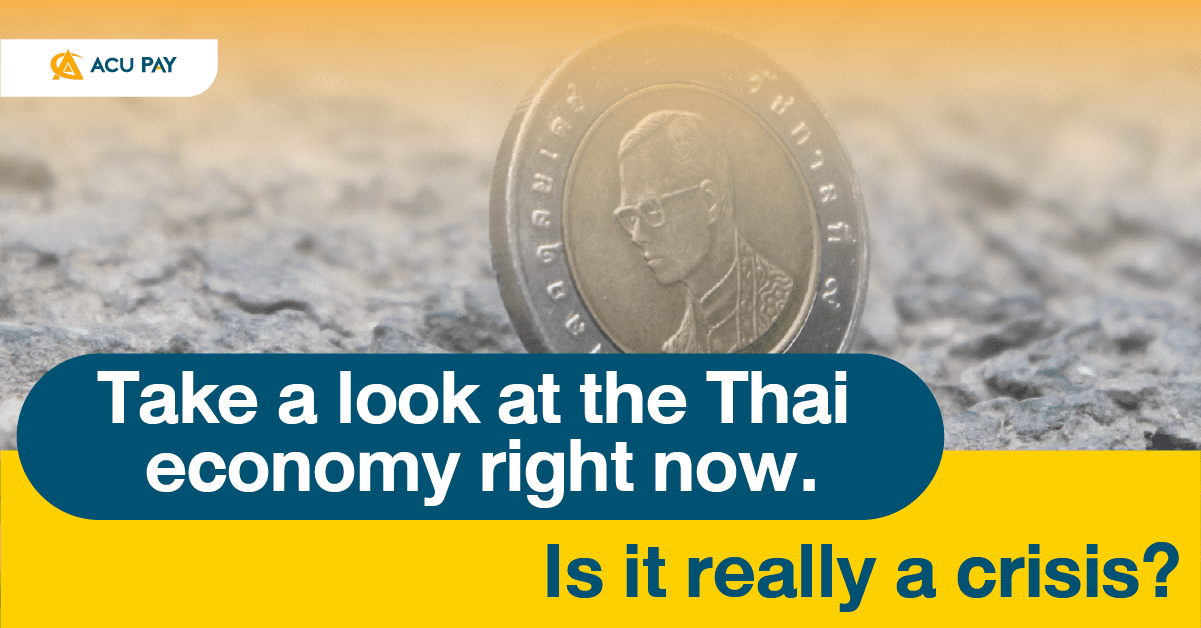

Previously, it was a controversial issue in terms of the Thai economy. The government viewed that the Thai economy had come to the ‘crisis stage’ already because the economic growth rate was ‘lower than expected’ On the other hand, the opposition saw that the Thai economy was ‘not in a crisis’ but just ‘has a little growth’
This might be hard to say, but the undeniable fact is that the Thai economy, compared to last year’s growth, has grown really slowly compared to its neighboring countries.
Previously, the National Economic and Social Development Council or NESDC revealed the third quarter of GDP growth in 2023 of only 1.5% which was lower than expected and went down 0.3 % from the second quarter of 2023.
However, if we consider various parts of GDP, it was found that ‘private consumption’ in the third quarter grew 8.1% which went up from the second quarter and was the highest growth in four quarters.
The main factors are domestic consumption and the recovery of the tourism sector which may result in the growth of the services sector as well. In addition, the unemployment rate and inflation rate went down from last quarter.
In terms of the economic outlook in 2023, KKP Research by Kiatnakin Phatra Financial Group noted that the third quarter GDP grew relatively low at 1.5%, while demand-side GDP grew at 5.6%. The large difference in demand and supply of GDP has led many to wonder what the current Thai economic situation is like. KKP Research estimates that the overall Thai economy is still weaker than the figures show.
However, KKP Research estimates that when combined with other economic indicators, domestic spending is likely to grow less, under the following observations.
This was due to the slow recovery of domestic income, the lending of the banking sector having become much tighter, and a sharp rise in interest rates that led to higher debt burdens.
Currently, the profit outlook of the companies in the Securities Exchange of Thailand has been poor, and the number of shares that have been revised downward in earnings is more than those shares that have been adjusted upward. The Earning Per Share or EPS of the Securities Exchange of Thailand this year fell more than 10% from the beginning of 2023, which is one of the biggest declines in the world. This indicates that the Thai economy is likely to slow rather than recover well.
has continued to slow down. It was slow in both necessities and luxuries and tends to be minus in the third quarter of 2023 compared to the same period last year.
that commercial banks have a poor view of economic prospects and loan quality in the future, thus delaying lending.
Value-added tax, which should reflect economic activity, shrank by around 3% compared to the last year, reflecting slowing economic activity.
KKP Research estimates that if the Digital Wallet policy is implemented as declared, it will cost as much as 500 billion baht while boosting consumption in the short term. However, the overall economic stimulus is relatively limited compared to the costs.
The fiscal multiplier is estimated at 0.3 times, which will have a positive impact on GDP by around 0.8 % in 2024. This will only be temporary during the second and third quarters of next year. If this is implemented, the economy may slow down significantly after that. The current slowdown in the Thai economy is due to structural problems rather than temporary income decline. In addition, the negative impact will include rising indirect costs on the economy as market interest rates rise due to the government’s need for more loans.
Finally, KKP said that the slowdown in the Thai economy, particularly domestic demand, is not only a temporary factor but mostly due to structural problems in the long run that have dampened Thai economic growth.
Thailand’s current growth potential may drop to around 2.4 % in line with the new growth trend, which cannot be resolved through short-term economic stimulus. However, long-term economic structural reforms are needed to enhance the country’s sustainable growth potential.